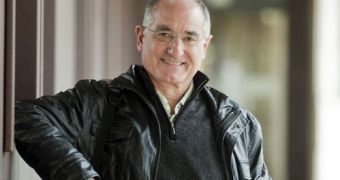A researcher from the Basque Country says that people in the Western world tend to live well, but die badly, and believes that this issue can be addressed. According to a research by scientist Iñaki Olaizola, most of the individuals investigated are more afraid of how they will die than of actually dying.
During his study, the expert interviewed a large number of people on the topics of euthanasia and the process of dying, and discovered how perception of these two phenomena changed in the Basque Country since the 1970s.
He recently defended the conclusions of his anthropological thesis at the University of the Basque Country (UPV/EHU). The scientist used a series of in-depth interviews with 15 individuals as a basis for his conclusions.
Olaizola said that he interviewed more women than men because, historically, the burden of caring for others falls on the shoulders of women. As the general population tends to live longer, females need to take care of their families with increasing dedication and relentlessness.
Interestingly, the expert did not includ doctors into the study sample, explaining that “it is everyone’s concern; the process of dying is not something exclusive to specialists, let alone doctors.” Olaizola only chose “regular” people to interview for the research.
“Once certain decisions have been taken, the doctor is essential, but as far as the reflection, the debate, the value of the life, the point of it, etc. is concerned, it is not the responsibility of the doctors, but of everyone,” he explained.
One of the main points in this thesis is that the state should guarantee a dignified death to its citizens, by means of legislation. “We in the Basque Country, and in the West as a whole, basically live well, but we die badly. And this is something that can be improved,” Olaizola said.
His work was entitled “Transformations in the process of dying: euthanasia, a matter for debate in Basque society.” It proposes that all humans, including women, have the right to live their own lives, without having to be morally obliged to take care of others until they die.
"Each person is the owner and master of his or her own process, the medical system is not authorized to look after you if you do not want it to. The cultural change is huge: our autonomy has turned into the fundamental principle,” the paper author added.
“And another important change as far as the legislation is concerned is the possibility of drawing up a declaration of advance directives, in which you can specify, for example, your wish not to go on living beyond a specific point,” he said.
During the interviews, many of the women said that they did not wish to be a burden to their sons and daughters as they became ill during old age. The reason for this was that they had suffered when it was their turn to care for their parents, and that they did not want such a burden placed on their offspring.
An important aspect of the study is that none of the respondents attached any type of redemptive, Christian-like value to suffering during old age. This implies that legislation could be set in place to allow those in pain a dignified death.
“All the people I interviewed said that pain is unnecessary and that it has to be eliminated. Legislation has to be passed on that right to a dignified death, there must be guarantees. The quality of death needs to be improved because it is still bad,” Olaizola concluded.

 14 DAY TRIAL //
14 DAY TRIAL //